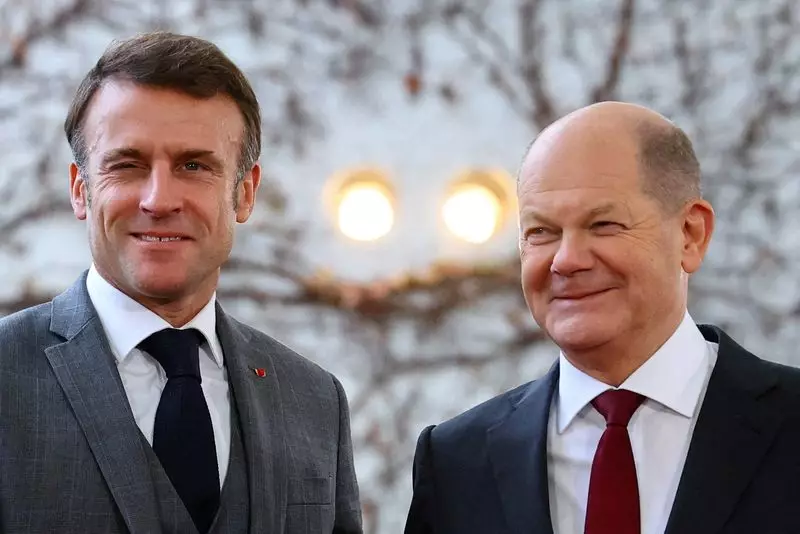French President Emmanuel Macron’s upcoming state visit to Germany is a crucial event as the European Union’s two biggest powers aim to display unity ahead of the EU parliamentary elections. At a time of significant challenges for Europe, such as the Ukraine war and the potential election of Donald Trump as U.S. president in November, the relationship between France and Germany becomes even more critical.
Macron and German Chancellor Olaf Scholz have distinct leadership styles and have faced public clashes on various issues since Scholz assumed power in late 2021. Despite their differences, they have managed to reach compromises on important matters such as fiscal reform and power market subsidies, allowing the EU to present a more cohesive front.
There have been tensions in the German-French relationship, partly due to their handling of difficult topics. Nevertheless, both countries have found common ground on issues like expanding the EU eastwards. The upcoming state visit is an opportunity to demonstrate that the relationship is functional at the highest political level.
One significant gap between France and Germany lies in European defence, especially in the context of a potential victory by Donald Trump in the U.S. presidential election. While France advocates for a more self-reliant Europe in defence matters, Germany emphasizes the need for the U.S. military umbrella due to lack of credible alternatives. This discrepancy poses a challenge for the EU’s future defence strategy.
Macron’s visit, which includes stops in Berlin, Dresden, and Muenster, will feature meetings with key German officials and a bilateral cabinet meeting in Meseberg. The focus will be on addressing differences in defence and competitiveness issues. Additionally, the two countries will strive to find common ground on the EU agenda for the next five years, anticipating the rise of far-right parties in the upcoming parliamentary elections.
According to experts, the EU has a strategic window to advance more ambitious plans between the parliamentary elections and the establishment of new leadership. This period will be crucial for EU decision-making, especially in light of potential changes in U.S. leadership. The success of Macron’s visit could pave the way for future collaboration between France and Germany in shaping the EU’s future direction.
French President Emmanuel Macron’s state visit to Germany holds significant implications for EU unity and decision-making. Despite differences in leadership styles and policy priorities, both countries are poised to demonstrate a commitment to collaboration on key issues such as defence and competitiveness. The success of Macron’s visit could signal a new chapter in Franco-German relations and shape the trajectory of the EU in the coming years.

